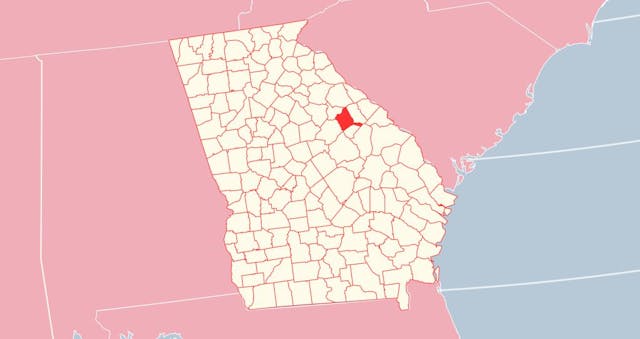Rehabs in Warren
Warren county was established on December 19, 1793, in Georgia, US. Warrenton is its county seat. As the 9th smallest province, it has a total of 287 square miles area. Besides, this region is one of the minor dense populated areas. According to the data, its population was 5,153 in 2021, decreasing by 1.19%.
As a small province, it ranks as a low-healthy area. Based on 2021 statistics, there were 14 overdose drug deaths. Meanwhile, it had 5% alcohol-impaired driving deaths.
Although Warren county does not have enough rehabs, the rest are trying to improve their services with the Department of Health.
Drug and Alcohol Evaluation
When someone wants to stop using drugs and get help, they must undergo an evaluation. It is a particular kind of test that consists of many steps.
Firstly, visitors should present their history of addiction or abuse. Then, if necessary, people will take blood, hair, urine, and other tests. Once physicians know the state of clients, they will recommend a cure program.
Rehab Programs in Warren County
Although there are not many rehab centers in this province, others provide all programs for residents. In fact, they show a complete approach to having a healthy society.
Detox
Breaking away from drug abuse may be risky for some people if not monitored by trained professionals. When someone takes this action lonely, it may be done incorrectly and lead to dangerous outcomes.
For that purpose, rehabs in Warren county advise only a residential detox program. Addiction doctors use medicines that reduce the harmful effects of withdrawal symptoms.
Detox is the core of treatment.
Clients will quickly recover within the inpatient level of care if this process is done correctly and completely.
Inpatient (IP)
IP offering a healing plan far away from patients’ homes helps them focus on their recovery. They learn to achieve long-term sobriety in a substance-free environment.
In essence, holistic therapies free addicts from dependence by involving them in various activities. Those teach new skills and achievements in life. Life skills include contact with nature, crafts, arts, and physical activity. Thanks to them, coping abilities develop in a person, and they gain balance.
Outpatient (OP)
OP offers evidence-based counseling treatment plans for those who need to adjust recovery with their life. It provides individual therapy that is one-on-one interaction with a skilled therapist. It takes place in a safe and secure atmosphere. This healing method helps patients overcome substance addiction symptoms and underlying causes.
In addition, people take part in group therapy. It is a great way to change addictive behavior. Participants receive social support here. It helps them understand that they are not alone in their recovery journey.
Partial Hospitalization (PHP)
As the most intensive outpatient type of care, PHP takes place five days weekly for several hours daily. Clients attend various activities and meetings. Besides individual and group therapies, family counseling is the central part of it. These can help and support their loved ones when they return home after the cure.
Prices and Payment Options
Treatment costs for substance use disorder are very subjective. The types and duration of programs affect the price. However, clients can cover healing costs for themselves and their loved ones through private insurance.
Thus, those who do not have insurance can take advantage of various payment systems or financial assistance that the clinics will provide.
Teens Rehabilitation
Teens struggling with addiction can get specialized medical care in this province. That is to say, medical centers provide comprehensive and personal counseling for children and minors.
Doctors have developed unique methods for them according to age groups. So, it is possible to give up drugs and alcohol entirely due to specific strategies.

